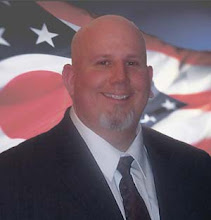(Originally published on March 18 in the Notes of my personal Facebook profile; but, over the last few days the urge to publicly publish this has taken hold...)
As I get older, I do find the blind association of St. Patrick's Day with excessive libation disquieting. Also troubling for me is the harsh criticism of Christians (Catholics in particular) for "allowing" such a development.
The problem with that observation is it ignores two key points:
First – the entire history of St. Patrick (or Pádhraig if you go with the Gaelic spelling) and how his holiday became a Holy Day of Obligation for observance in Ireland;
Second – the fact it was not Catholics who steadily evolved this holiday into an excuse for alcoholic debauchery but secularists who seem to take bizarre pleasure in ruining Judeo-Christian traditions.
The notion of drinking being associated with St. Patrick’s Day is based in part on the old (very old) tradition of the men in the towns across Ireland coming together for a round of ale at the end of a long day spent commemorating and honoring his bringing Christianity to the Emerald Isle. In olden days (and even in a number of instances back in Ireland today), the holiday was begun with a long mass dedicated to Patrick’s memory and legacy. Families came together in a manner much like how Thanksgiving and Christmas used to be observed many moons ago. The work involved in making the day what it was meant to be left most of the Irish people feeling a bit deserving of a spirit of some sort (usually a pint) at the end of the day.
The other component of alcohol consumption being tied to the holiday is the result of people gradually expanding upon the stereotype of the Irish nationality and its reputation for alcoholism.
But to revisit the subject of secularism wrecking time-honored traditions and holy days of obligation for recognizing certain saints, this is the same process that played-out with St. Valentine’s Day.
The St. Valentine for whom February 14 had been set aside for remembrance (there are several saints named Valentine) was a priest who was martyred in the 3rd century AD for marrying Christian couples – this was before the conversion of Rome, so aiding Christians was a crime punishable either by imprisonment or death. His order for execution was handed-down by Roman Emperor Claudius Gothicus after Valentine attempted to convert him during his imprisonment.
This is why the date is associated so inextricably with romance. Observance of February 14 began in England during the late 15th century.
And, of course, there is the obvious manner in which secularists turned Christmas into a near-orgy of commercialism. Enough said on that, basically.
Subscribe to:
Post Comments (Atom)

No comments:
Post a Comment